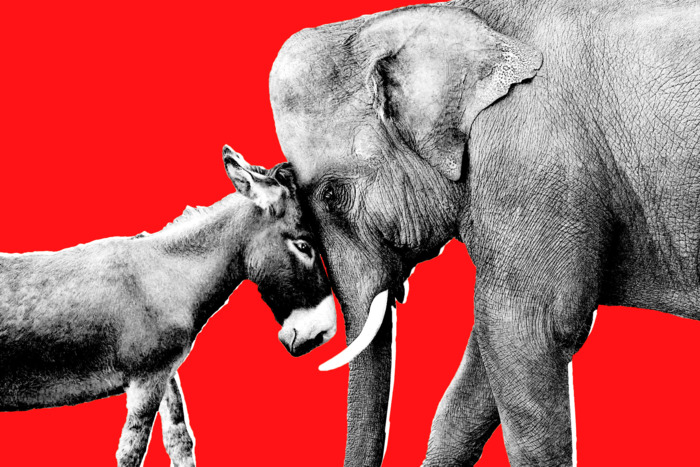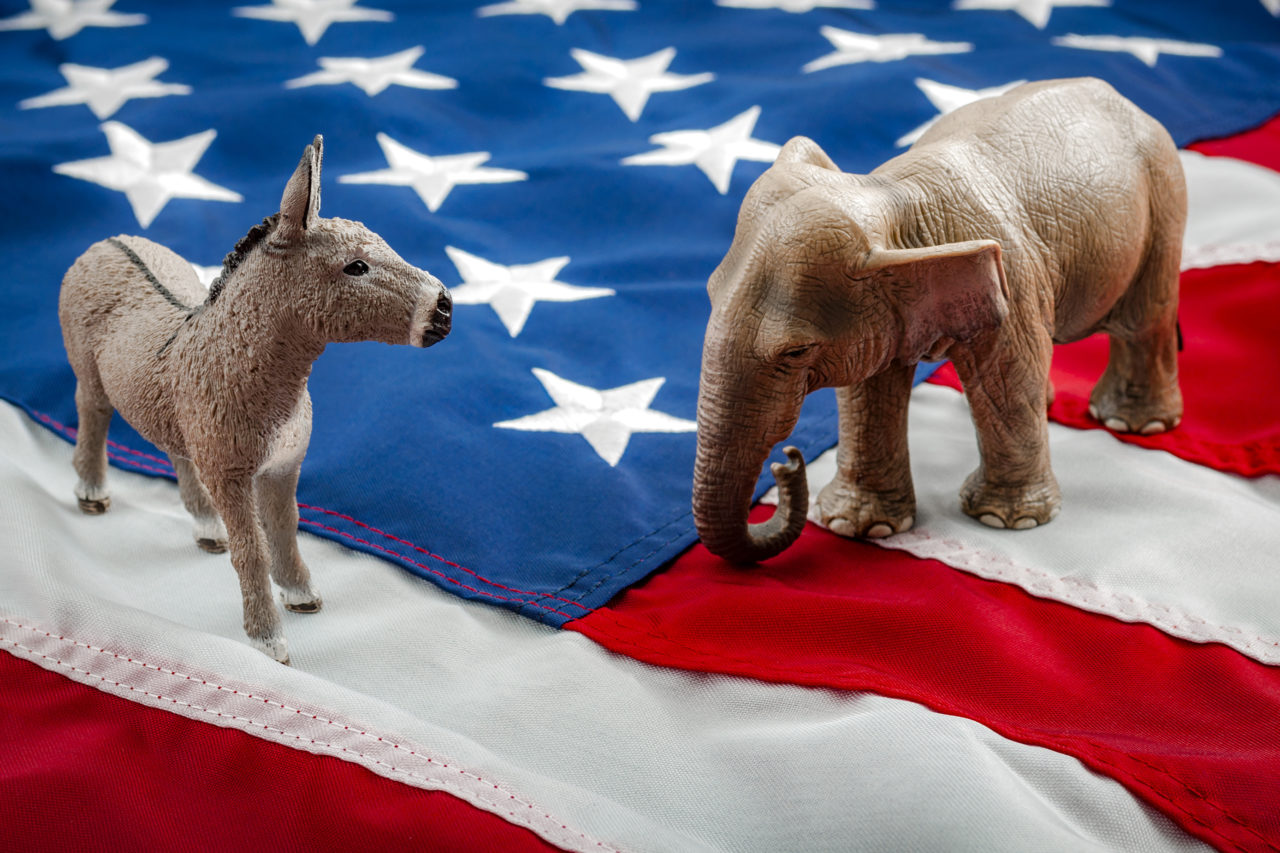Democrats and Republicans all think the other party is composed of extremists.
Accuracy is often as easy as opening your eyes. Herewith, a quick study at where we are, and where we’re headed. I’ve bolded some key passages. Btw, I like both donkeys and elephants. 😉
Via New York Magazine, Ed Kilgore, 10/21/19
That the American political system has recently been characterized by intense partisan polarization is hardly breaking news. It’s not entirely news, either, since it has been underway since the two parties began realigning ideologically in the 1960s, mostly because of the civil-rights revolution. The fact that we are in an era of (mostly) close partisan parity matters too; that raises the stakes of elections and drives sharp partisan differentiation.
Still, there’s “partisan polarization,” and then there’s the kind of bitter division normally associated with things like the Spanish Civil War. The latest edition of the American Values Survey from the Public Religion Research Institute shows pretty clearly that partisans subscribe to extremist characterizations of what makes the other side tick. Putting aside whether these are true (we’ll return to that topic later), it’s amazing how little Democrats have in common with Republicans, and vice versa, in how they view the other party.
The survey asks whether the Democratic Party is “trying to make capitalism work for the average American” or “has been taken over by socialists.” Self-identified Democrats agree with the former description over the latter by an 83-15 margin, but self-identified Republicans agree with the latter over the former by an 82-17 margin. This probably isn’t just a vestige of the era of Bernie Sanders and Alexandria Ocasio-Cortez, by the way; you may recall there was a serious effort ten years ago to get the Republican National Committee to constantly refer to the Donkey Party as the “Democrat Socialist Party” shortly after the centrist Barack Obama took office.
Meanwhile, the PRRI survey asked if the GOP is “trying to protect the American way of life against outside threats” or “had been taken over by racists.” Republicans chose the former characterization by a 94-5 margin, while Democrats chose the latter by an 80-17 margin.
Some may object that to some extent these findings simply reflect the tendency of partisans to choose less-disreputable labels for themselves and more-disreputable labels for the Other Team. But still: The extreme disconnect in perceptions has to mean something.
And that leads one back to objective reality and the need to resist the temptation to see partisan polarization through the lens of false equivalence. Have Democrats really been “taken over by socialists?” Well, all I know is that the currently preeminent lefty candidate for president embraces the capitalist label regularly and enthusiastically — as do all but one of her nomination-contest rivals, not to mention the vast majority of Democrats in Congress and in statehouses around the country. Even the nation’s most prominent self-identified “democratic socialist,” Bernie Sanders, stands for an ideological tradition borrowed mostly from FDR, not from some alien anti-capitalist tradition.
Now it’s true that most Republicans strongly resist the racist label too. But it’s also true that the maximum leader they adore has embraced racist expressions for most of his career. And the same PRRI survey that documents partisan polarization also shows that 69 percent of self-identified Republicans agree that “discrimination against whites has become as big a problem as discrimination against blacks and other minorities.” You probably need to be at least a wee bit racist to believe that howler.
False equivalence aside, these findings add to our understanding that the 2020 elections are going to represent an apocalyptic clash of cultures and perceptions. Taking perceptions of the opposition as they exist and ratcheting them up into the insane level they are likely to achieve when the deal goes down is going to make this feel like a fight between the Klan and Commies. And unlike some political systems, ours has no mechanism to create a coalition government. It will be all or nothing for both sides, at least when it comes to the executive branch and the judicial branch the president’s party will dominate via appointments — and perhaps the legislative branch shaped by straight-ticket voting. Gird up your loins.
Article Link: http://nymag.com/intelligencer/2019/10/commies-versus-klan-dems-and-gops-dim-views-of-each-other.html
Related: https://video.nationalgeographic.com/video/00000158-446f-de19-a1fc-f56f5ebb0000


